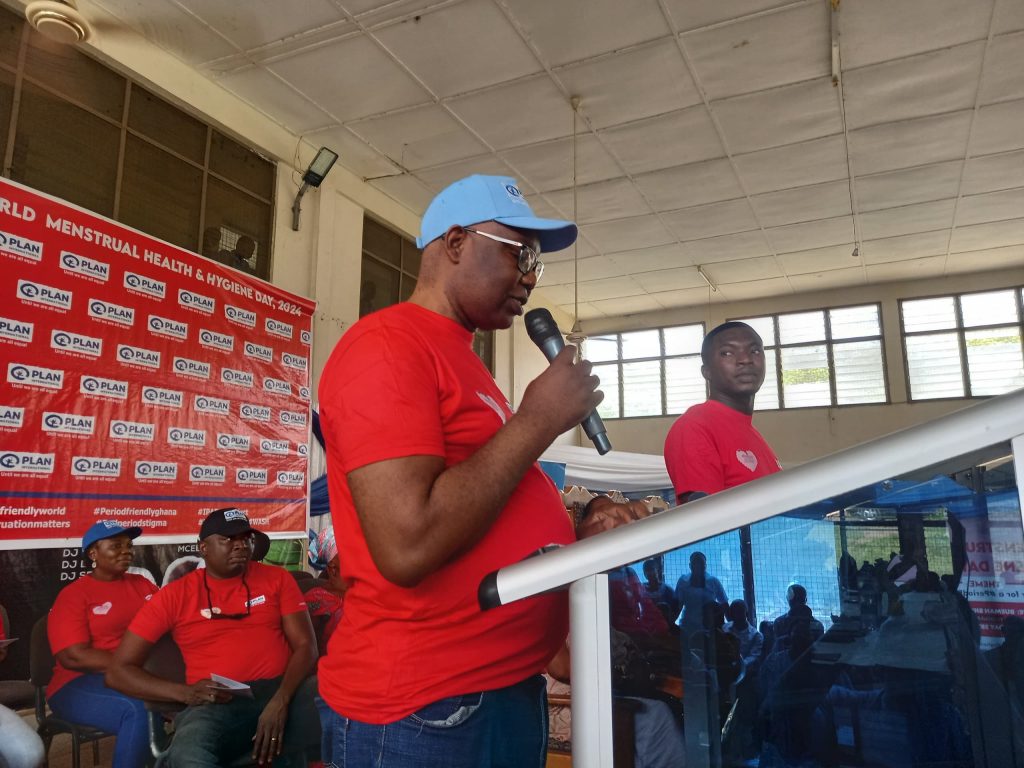By Edward Williams
Jasikan (O/R), May 28, GNA – Mr Constant Tchona, Country Director, Plan International Ghana, has called on governments to allocate sufficient resources for menstrual programmes and monitor the implementation of the policies to ensure accountability and impact.
He said governments must also integrate menstrual health into national health and education policies.
Mr Tchona in an address to commemorate the 2024 Menstrual Health and Hygiene Day at Jasikan in the Oti region said the Organisation had recognised and appreciated the efforts of the government in reducing taxes on materials to produce sanitary pads with the aim of making them affordable to many.
He said there was a need for more to be done to achieve a “Period-Friendly World” as well as strive towards a global objective.
“To achieve “Together for a Period-Friendly World,” we must strive towards a global objective of ensuring that menstrual health is rightly positioned as both a human and a health right for girls, young women and women”.
Mr Tchona said governments and stakeholders must invest in the construction and maintenance of menstrual or girl-friendly infrastructure, particularly in schools, work, and public spaces.
He called for the engagement of community leaders, grassroots organisations and men and boys as allies to help dismantle harmful norms and promote positive attitudes towards menstruation.
Mr Tchona said strides must be made to eliminate myths and misconceptions surrounding menstruation through age-appropriate and culturally sensitive education programmes.
He noted that work must be done to eliminate financial barriers and ensure that menstruators regardless of their socio-economic status, had access to a range of safe and hygienic menstrual products.
Mr Tchona said the Organisation and its partners worked all year round to break the taboos and end the stigma surrounding menstruation and also mobilise the funding required for action at scale.
He said they raised awareness about the challenges regarding access to menstrual products, education about menstruation and period-friendly sanitation facilities in Ghana.
Mr Tchona called on all to recognise the environmental impact of menstrual products such as single-use pads and tampons and their significant contribution to plastic pollution.
“As we advocate for menstrual hygiene, let’s also promote sustainable alternatives such as menstrual cups, reusable pads and biodegradable options”.
Mr Frank K. Boamah, Headmaster of Bueman Senior High School (SHS), said with the high female population of the school, they were always confronted with the realities of the challenges associated with menstrual health.

“Many of our girls lack access to menstrual products and adequate facilities to manage their periods”.
He appealed to Plan International Ghana and other stakeholders to construct a 10-seater gender-friendly KVIP toilet facility for the school.
Mr Boamah appealed to policymakers to prioritise menstrual health issues due to the important role it played in human rights, public health, and gender equality since it sought to eliminate period poverty in which girls struggled to afford menstrual products.
Some 500 reusable sanitary pads were given out to girls in the Bueman SHS by Plan International Ghana.
The celebration was on the theme “Together for a Period-friendly world”.
GNA